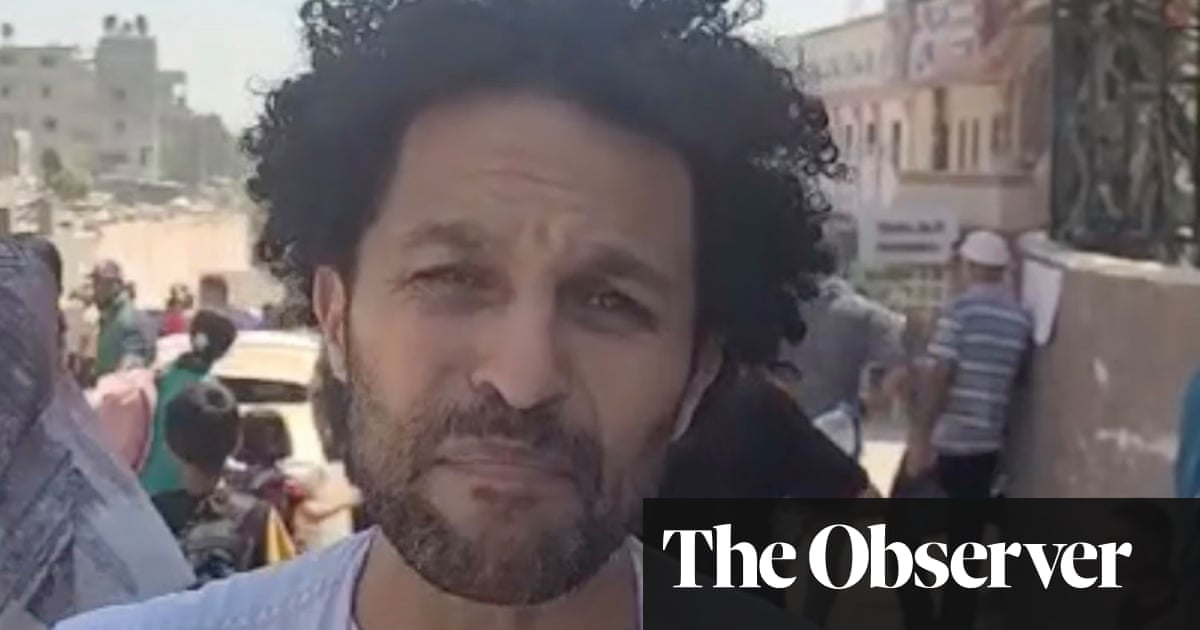There are hospice programs in penitentiaries. It’s an accommodation for those who will die behind bars in the United States, the country recorded to have the world’s largest (by capita) and oldest prison population because the system isn’t designed to let incarcerated people out.
That’s a circumstance Nature of the Crime directors Ricki Stern and Jesse Sweet mention among the reasons they explore New York state’s parole programs in their film, asking fundamental questions about the prison system’s purpose – whether it’s meant to rehabilitate or lock people away forever.
“They’re not intended to rehabilitate people,” says Stern, who alongside Sweet is speaking on a Zoom call with the Guardian. “People who are rehabilitated in prison are doing the work themselves. They’re finding ways to be rehabilitated and to find purpose in their life.”
In Nature of the Crime, Stern and Sweet primarily follow two convicted men through a parole process that for some can appear futile. Todd Scott and Chad Campbell have each spent more than three decades behind bars. It’s on them, both a generation removed from their crimes, to convince a deeply subjective and often politicized parole board that they are demonstrably remorseful and rehabilitated.
“How does one even demonstrate remorse and rehabilitation?” Stern asks, reiterating one of the questions her film poses. Another question: does remorse and rehabilitation even matter in cases like these, given – as the title says – the nature of the crimes?
Scott, 54, is serving 25 to life for taking part in an infamous 1988 assassination ordered by New York drug kingpin Howard “Pappy” Mason. The victim was rookie police officer Edward Byrne, who was tasked with guarding a witness set to testify against Mason. In the planned execution, Scott, who was 18 at the time, distracted Byrne before his associates opened fire. The murder became a flashpoint in the Reagan-era war on drugs, swaying public sentiment against anyone involved in trafficking. George HW Bush even carried Byrne’s badge around during his successful presidential election campaign, keeping it on his desk at the Oval office during his term.
“[There] is no redemption for those who kill police officers,” Byrne’s brother Kenneth said, in a statement reported on by the New York Post, after Scott’s most recent parole hearing in January.
Campbell is serving two consecutive nine-years to life sentences for a 1990 double homicide. He was 14 when, in an unprovoked fit of rage, he brutally stabbed his 15-year-old classmate Cindy Lewis and Curtis Rizzo, the 17-month-old child she was babysitting.
“We chose particularly difficult cases,” Stern says of her and Sweet’s film, which builds an empathetic portrait of both men, digging into the childhood traumas and circumstances that led to their crimes, and the work they put in to heal, improve and help others. Nature of the Crime poses a challenge to the audience to step into the shoes of the people appointed to the parole board, to see the men behind the sentences, not as they were but as they are now, without dismissing the severity of their crimes and the impact on the victims.
“Whenever we would go and visit people in the prison,” says Sweet, “[during] the car ride home, we’d always have these difficult conversations. You feel conflicted because there’s loss of life on one hand, but there’s this human being who’s a different person today. And we really like wanted to sit in that.”
Stern and Sweet, who previously worked together on the Netflix docuseries Surviving Death, arrived at this project after discovering an article about the Parole Preparation Project. The not-for-profit founded by activists and formerly incarcerated people pairs volunteer community workers and lawyers with inmates, helping them prepare for those brief parole hearings. In Nature of the Crime, attorneys Rhiya Trivedi and Rochelle Swartz do exactly that with Scott and Campbell, respectively, their warm and nurturing conversations excavating the past, searching for the emotions and triggers that fueled their crimes and the way they process those feelings and their guilt today.
“A lot of people don’t have the words to express it,” says Stern. She’s speaking to the challenge for these men who are tasked with letting their guard down and reliving the worst moments of their lives during a brief interview that determines their freedom. It’s a process that also entails being mindful of performance on the one hand but staying genuine and vulnerable on the other, all while articulating their growth to the satisfaction of the parole board. “For a lot of people – and this I think is what we realized – they have moved on. Not that they’ve forgotten their crime. Not that they don’t think about their crime or their victims or the impact of their crime. But they have grown and changed in a place that doesn’t really foster growth and change. It’s very hard for them to put themselves back to that moment that’s fixed in time.”

In Nature of the Crime, Scott and Campbell’s stories are couched within a broader conversation in which former parole board members, lawyers, judges, advocates and another young inmate named Carlos Rebollo (working his way through New Jersey’s more transparent parole system) speak to their experiences with and expectations from the justice system. The voices that are noticeably absent in this conversation include Byrne, Lewis and Rizzo’s families. Stern and Sweet explained that they reached out formally through both the Police Benevolent Association (in the case of Byrne) and a victim advocate appointed by the crown for Lewis and Rizzo. The film-makers say all parties agreed that it would be better for representatives (like the prosecutor in the Lewis-Rizzo case) to speak on the victims’ behalf.
“While we wanted to hear their point of view, it really is the story of the person applying for parole,” says Sweet. “We didn’t want a big six-hour heartfelt interview with [the victims’ families] and then say: ‘You’re not the emphasis of it.’”
Stern adds that re-traumatizing such voices is perhaps not necessary, not just for their film, but also in the parole process, in which families often take the opportunity to speak for the victims.
“Some would argue that the victims and the families don’t get to fully process this,” says Stern. “They have to still come back every two years to bring up those feelings of loss and feel like they have this power to keep someone in prison. And if they don’t do that, if they don’t speak out, then they’re failing their loved one, who is gone.
“There are questions about whether or not that should even be part of the process … If parole is really this process to judge someone who’s been in prison, is ready to be let out, is ready to come back into society, having the victims’ families become part of it can open up wounds. They shouldn’t have to have relive this.”
-
Nature of the Crime premieres on 10 December on HBO and will be available to stream on Max

.png) 1 month ago
6
1 month ago
6













































